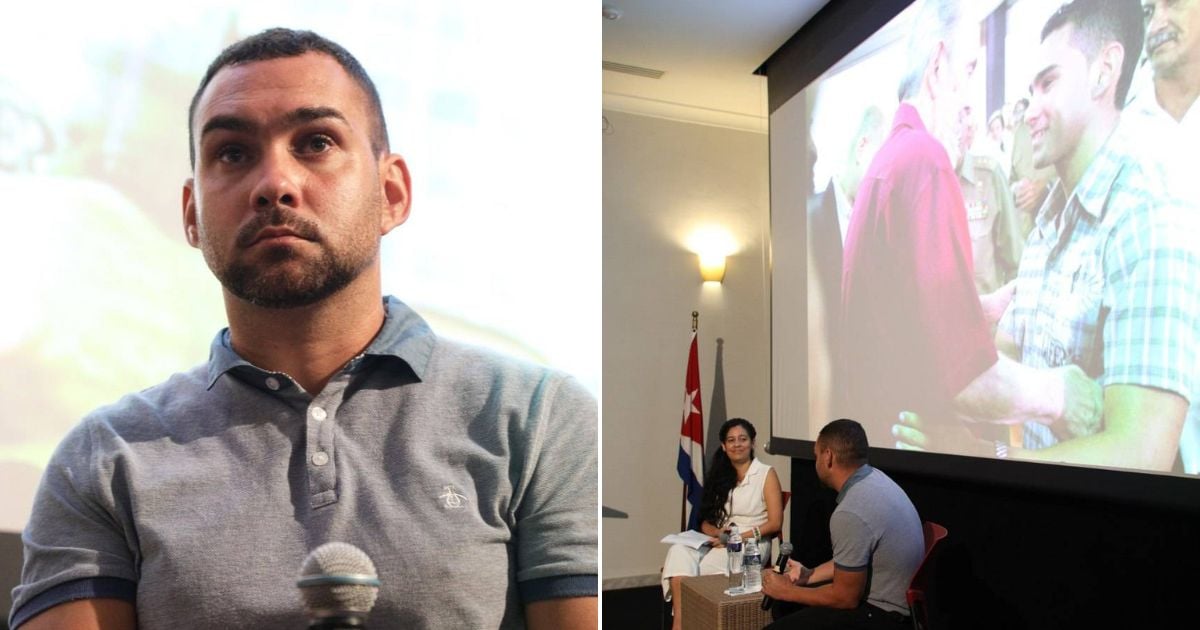Twenty-five years after becoming a political icon, Elián González, now 31, has re-emerged in the public eye. This time, he pays homage to the man who, according to him, saved, nurtured, and cared for him—Fidel Castro. The scene unfolded at the Fidel Castro Ruz Center during the event "With His Own Light," where Elián appeared hand in hand with his young daughter, completing a perfectly woven and almost surreal narrative.
This incident underscores that when it comes to promoting the Fidelist agenda, the regime spares no effort in honoring the man who allegedly refused their presence. The child who in 1999 was at the center of an international drama, forcibly removed by federal agents from a Miami home at gunpoint, now returns as a grateful adult, transformed into a deputy and staunch supporter of the revolutionary narrative. Elián recalls the Commander as a tender grandfather, an ever-present protector, and even a confidant.
In Elián's eyes, Fidel embodied a divine presence on earth. Once a symbolized child, he fondly reminisces about Fidel's gestures with the sweetness of recalling a close relative: the affectionate whispering, chocolates with books, home visits, and school snacks interrupted by the leader's inquiries. This sugar-coated tale is typical of a propaganda machine aware that the symbol of the decaying "Cuban Revolution" is diminishing.
During his speech, Elián expressed gratitude not just for his return to his family but also for the manner in which his re-entry to Cuba was managed: without media, without interviews, with the classroom unchanged, the same teacher, and the same classmates. This orchestrated scene of normalcy was, according to him, the brainchild of Fidel's genius. The fact that this protected childhood was also a political control strategy isn't part of the script, yet his privileged memories, sheltered by Fidel, have seemingly erased the reality of becoming a banner for Fidel's cavalry.
The testimony is filled with meticulously crafted anecdotes: Fidel patiently waiting to meet him, obeying his younger brother's command to "Stand firm!", sharing meals while discussing proteins in bean stew, arranging art classes and baseball games tailored to the boy's interests. All with the ease of a full-time grandfather, who just happened to also be the dictatorial leader of a nation.
The devotion—if not outright worship—extends further. González has begun introducing his four-year-old daughter to Fidel as if he were a real grandfather, a domestic version of the regime's indoctrination machinery. "When she sees a photo, she already recognizes him," he says tenderly. He hasn't yet shared the full story—perhaps due to its complexity or convenience—but that time will come. For now, planting the seed of unconditional affection to ensure the idolatry doesn't fade suffices.
In a country in crisis, where official memory is upheld more by acts of worship than historical debate, Elián represents the seamless continuity: the rescued child, turned exemplary adult within the ideological mold, pays tribute to the eternal leader without cracks, without questions, without doubts. If his speech made anything clear, it's that this commitment never ends: "Until the very end," he declared, "I will do everything to fulfill the wishes of Fidel and Cuba."
And with that, another chapter of revolutionary narrative was sealed: the child who once was a symbol chose to remain one.
Insight into Elián González's Tribute to Fidel Castro
What event brought Elián González back into the public eye?
Elián González re-emerged in the public eye during an event at the Fidel Castro Ruz Center, where he paid tribute to Fidel Castro.
How does Elián González describe his relationship with Fidel Castro?
Elián González describes Fidel Castro as a friend, grandfather, and protector who played a vital role in his life.
What role does Elián González have in Cuba today?
Today, Elián González serves as a deputy and is an advocate of the revolutionary narrative in Cuba.
